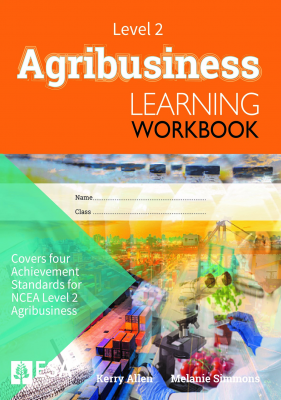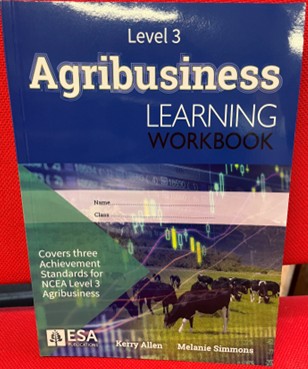Section outline
-
-
Purpose
So that your Year 11, 12 & 13 students can make informed decisions about their careers, Lincoln University, Massey University and DairyNZ are offering to organise a one-hour presentation for your school.
Aim
The aim of this event is to inspire and excite Year 11 - 13 students, about the opportunities and variety of careers offered by our primary industries. We’ve called these events “Soil Makes Sense (and $$$!)”
Format
Brief presentations from five or six young, local representatives from different areas of the primary sector value chain (such as farmers, rural bankers, vets, food technologists, fertilizer reps, rural accountants, environmental managers, scientists etc.). The presentations will be snappy and engaging with each speaker having about five minutes to talk about::
· The Present: their current role and a typical day - what they actually ‘do’ in their day to day work.
· The Past: How they got there. What training or qualifications they needed for their role
· The Future: What’s the next step up if they want to move - how transferable are their skills? What are their prospects in the next 5-10 years?
Following this, the MC of the event will provide a quick overview of the primary sector including the current skill shortages in some areas and the earning potential. Students will also be able to talk directly with the speakers after the presentations.
All students will receive a business card with the website addresses of most of the institutions and organisations that can help them with more advice or information.
-
Level 2 Agribusiness Learning Workbook is a LearnWell title that covers the following four internally assessed Level 2 Achievement Standards:
- 91865 (Agribusiness 2.7) Demonstrate understanding of future proofing influences that affect business viability
- 91866 (Agribusiness 2.8) Conduct an inquiry into the use of organisms to meet future needs
- 91867 (Agribusiness 2.9) Demonstrate understanding of a primary industry business structure that best meets the strategic needs of a business
- 91868 (Agribusiness 2.10) Demonstrate understanding of cash flow forecasting for a business.
The workbook features:- bite-sized sections of theory with student-friendly explanations
- examples to illustrate concepts
- plenty of NCEA-style questions so students can improve their skills and practise problem solving
- in-depth suggested answers to questions.
An index gives easy access to important terms and definitions highlighted in the text.
The concise theory notes and write-on exercises keep student work together in a compact format, providing a useful end-of-topic revision tool.
This workbook is ideal for use in the classroom or for homework, home study and revision.
-
-
-
-
-
Level 3 Agribusiness Learning Workbook is a LearnWell title that covers the following three internally assessed Level 3 Achievement Standards:
- 91869 (Agribusiness 3.8) Analyse future proofing strategies to ensure long term viability of a business
- 91870 (Agribusiness 3.9) Analyse the effect of financing options of a strategic capital expenditure decision on a business
- 91871 (Agribusiness 3.10) Analyse how a product meets market needs through innovation in the value chain
All three Achievement Standards are internally assessed.
All key content and skills are covered for each Achievement Standard. Activities provide class and homework material, as well as offering preparation for the internal assessments throughout the year.
The workbook features:
- concise theory notes with brief, clear descriptions and explanations
- examples to illustrate concepts as well as worked examples that illustrate problem-solving applications
- comprehensive answers, giving useful guided help for students
- an index of all important agribusiness terms used in the text.
The book’s write-on format keeps student notes and work together in a compact form, as well as providing a useful revision tool.
Level 3 Agribusiness Learning Workbook can be used throughout the year.
-
-
-
-
Here is a collection of resources that could be useful in developing mātauranga Māori agribusiness concepts and practices into your schemes. Also includes some resources on other cultural perspectives as well.
-
-
Created by Leeann Morgan, Hamilton Boys High School
These slides cover over 100 Agribusinesses, each Agribusiness has a few slides outlining what the business is, and a video clip or two about the business.
The intent of the powerpoint is to open each lesson throughout the year by showcasing a new Agribusiness. The order the businesses is not necessarily important nor does it need to be specific to the topic you are covering, instead it can be used to introduce the variety of Agribusiness and to start discussions around product, brand recognition, innovation, and marketing.
The ppt also provides the opportunity to highlight the breadth of career opportunities throughout the sector and the scope for diversification and opportunities across the sectors. This in itself can help to dispel the myths and poor perception of the industry and working within it.
If it is possible, bring the product in for students to sample – nothing like tasting or experiencing the product to bring tangible learning experiences into the classroom.
-


